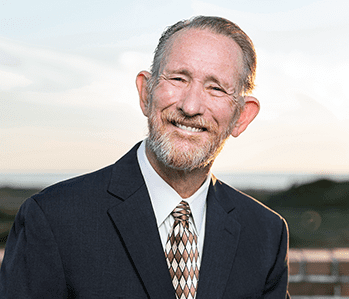
The purpose of this blog is to stimulate thought and discussion about important issues in healthcare. Opinions expressed are those of the author and do not necessarily express the views of CMDA. We encourage you to join the conversation on our website and share your experience, insight and expertise. CMDA has a rigorous and representative process in formulating official positions, which are largely limited to bioethical areas.
Christian Living
Ruminations on Behavior
November 7, 2024
by Robert E. Cranston, MD, MA (Ethics)
Human behavior is an interesting and incredibly complex topic. From time immemorial, people have studied various aspects of behavior and viewed this topic from countless perspectives. A number of academic disciplines are dedicated to studying behavior, including psychology, sociology, anthropology, psychiatry, neurology, philosophy, theology and others.
For several years, the most common arguments about causes for behavior centered around the concepts of nature versus nurture, with the behaviorists claiming that almost all responses could be programmed into humans with the appropriate stimuli. B.F. Skinner is perhaps the best known of the behaviorists. While some of the implications of behaviorism may lead us astray, we know from Scripture that if we “Train up a child in the way he should go; even when he is old he will not depart from it” (Proverbs 22:6, ESV). Behavior modification, and numerous educational and parenting theories, spring largely from this branch of thought. There obviously is some truth in a number of the ideas based on molding behavior with appropriate environment, education, instruction, rewards and punishments.
The environment we live in influences our behavior, and this includes the people we spend time with, the things we read or watch, our social media engagement and our leisure activities. Excessive screen time, especially with social media, has likely played a significant role in the rise of mental health issues. In 1 Corinthians 15:33, Paul tell us, “Do not be misled: ‘Bad company corrupts good character’” (NIV).
The nature side of the discussion has largely been featured into the news in the last few years with legal arguments related to genetics. A perpetrator commits some heinous crime, and the defense is that his or her genes dictated the behavior. A violent person is violent, but states this is because their genes make them that way. Thus far, judges and juries are not finding genetic arguments compelling. Again, there clearly is some truth in this direction—twin studies have demonstrated that identical twins raised in radically different, separate environments often have similar propensities not only to disease states, but also to smoking, alcohol abuse, violence, criminality and even political opinions.
From a theological perspective, sin—not a term used by scientists, but evident in human behavior—was traditionally often attributed to human choice in the context of “the world, the flesh and the devil”—namely the temptations we encounter, our own weaknesses and desires, and the efforts of spiritual forces attempting to encourage us in actions we know are sinful. Thus, while classic behaviorists and naturists tend to downplay the role of individual choice, historically in most religions, the individual’s decisions to act in particular ways have been paramount. Some naturalistic scientists and social scientists go so far as to imply all our behaviors are predetermined based on our nature and nurture, but Scripture is full of instructions to choose—to be faithful, to not fear, to love, to be kind and so on.
Recently, James Clear authored a fascinating book called Atomic Habits, in which he outlines ways we can change some of our most deeply ingrained behavioral habits, to help us not only achieve desired goals, but to change into better versions of ourselves. Clear describes three kinds of change: outcome change (specific goals), process/system change, (don’t look for someone to blame, fix the process) and identity change (I am the kind of person who is a health-seeker, and I choose to eat right and exercise), labeling identity change as the most important and long-lasting in effecting changes in behavior.
The discussion above omits consideration of external damage to the system—namely the brain. A growing awareness of traumatic brain injury and its impact on long-term cognitive loss is an example of this. Additionally, post-traumatic stress disorder may result from a combination of actual physical damage to the brain, or more frequently to neurochemical and emotional pathways developed before, during and after physical or psychological damage. Ferguson, et al. conducted a study addressing a trend toward increased religious fundamentalism in soldiers who sustained traumatic brain injuries during combat. Without dissecting all of their findings, it is noteworthy they correlated damage to particular areas of the right frontal and parietal lobes and the left cerebellum with increased religious fundamentalism. It is easy, tempting and foolish to pick specific single factors to explain complex behaviors.
A tenet I have often encountered in my medical career is there is a simple, straightforward explanation for almost every complicated problem, and it is usually incorrect. It reminds me of the old tale of blind men who examined an elephant. One, examining the tusks, claimed it was a large multi-spined creature, akin to a giant sea urchin. Another, examining the tail, was sure it was most similar to a large moving rope. A third, feeling the elephant’s strong legs, imagined it related to a tree, and so on. None of the men grasped the entire picture.
Physician and ethicist Dr. Lauris Kaldjian likes to use the terminology bio-psycho-social-spiritual wholeness, highlighting the fact that our choices, behaviors and identities, even in those who would deny it, contain a uniquely spiritual component in addition to the solely biological, psychological and social aspects of who we are. Jesus summed up the decalogue as loving the Lord with all your heart, soul, mind and strength…and your neighbor as yourself, in Mark 12:30-31 While the unique definitions for these four words may be debatable, there is no question that in sum they compose the totality of who we are.
Several truths emerge from these ramblings.
- We can’t change our genes; not much, not yet anyway.
- We can change our environment, though sometimes this may be difficult for several different reasons, but there are many who have risen above their environments.
- We can change the things we read and the things we watch. These choices lie within our purview.
- We can change the people with whom we associate, though at times it may be difficult due to family, contractual, occupational or other constraints.
- In Christ we are new creations, and this truth applies even in light of our genes, our environments, our education, our financial status or the people whom we are put in close contact with. God is still sovereign and is continuing to work on us to change our hearts, minds and behavior.



You are correct in these assertions, and I appreciate your inclusion of the spiritual component of behavior. An unregenerate person is spiritually dead, and his resources to lean on for behavior modification are only the world system, the flesh, and Satan. His only option out of this arrangement is the new birth offered in the gospel of Jesus Christ. A believer in Christ is certainly a new creation, a citizen of heaven, and has the present, resource-filled capacity provided by the Holy Spirit to manifest the life of Christ even while here on earth. The life possibilities under these conditions are supernatural, available, and expected by the One who gave the Spirit to those He saved and is continuing to save. For believers, operating a forklift or performing complex medical procedures can be accomplished “by means of the Spirit”, a spiritual operation that is unavailable to the unregenerate operator. Some would say this makes no difference. I do not understand how that is possible. If God is providing these resources for us to demonstrate love, joy, peace, patience….and the other fruits of the Spirit in our daily lives, and we are willing to allow this to be a part of our professional lives, how great a change is possible.